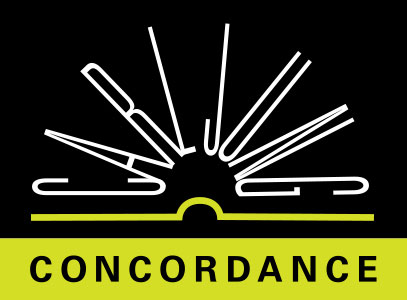A consideration of Greek mythology must start with at least a brief look at the myths of creation or cosmogony. There are several versions of how the cosmos came into existence
EARTH AS GAIA
The simplest is that first there was Chaos, and out of Chaos earth, or Gaia, emerged. Gaia gave birth to the sky, or Uranus, and then Gaia and Uranus produced a great progeny. So from Chaos a pair of world parents emerged and separated, who then created all the rest that exists
ED ¶ 0CREATIVE ACT INVOLVES
EXPOSURE TO CHAOS
What would that mean psychologically? For one thing it is an image of how the personality or the prefigurations of the ego (we can't speak of the ego yet) first begin. One can also think of it as representing how each new bit of psyche is created. After all, it is a creation myth, and it does fit our psychological experience that the creative act itself involves exposure to chaos. Creation means that something new comes into the world that did not previously exist. And if so, from whence does it come? The only place it can come from is the void region of nonbeing characterized in the myth as Chaos. That is the womb, the unbegotten womb of all things yet to be, and hence the experience of creativity commonly has as a forerunner or an accompaniment the experience of chaos. Nothing new can emerge unless one is willing to dip into chaos and pull it out
ED ¶ 0UNCONSCIOUS THINGS STAY
IN STATE OF ONENESS
Once it is out, it promptly splits into two, into earth and sky in terms of the myth. This is something we see whenever something is coming into awareness: the very process of achieving consciousness involves a split into opposites. Things can remain in their state of oneness only as long as they are unconscious. When they reach consciousness, they must divide into opposites and then we have the experience of conflict. When things are seen in twos in dreams, there is the suggestion that they are achieving a conscious status for the first time
ED ¶ 0ANCIENT DEITIES AS PREFIGURATIONS
OF EGO OR PRIMORDIAL SELF
The myths tell us that Uranus and Gaia were the first king and queen in the divine kingdom. There were wars for the kingship, and a series of dethronements took place in this very early mythology. The king did not want to let anything survive that was threatening to him, so he took certain repressive measures, which then called forth counteractions. These early dethronements, can be thought of psychologically. Humankind had not yet appeared at this stage of the story; hence, if we take the human being to signify the ego, the ego did not really exist. These ancient deities can be seen as prefigurations of the ego or as the primordial Self in conjunction with the ego germ. They were undergoing a certain transformative evolution, signified by the early dethronements
ED ¶ 0TITANS AND CYCLOPES
Uranus got into trouble because he imprisoned certain of his children. The two major branches of his offspring were the Titans on the one hand, and the Cyclopes on the other. The Cyclopes, giants that had a central round eyethe word means “wheel eye” literallywere confined in the earth. Upset at Uranus' imprisonment of them, the mother, always the more merciful of the two parents, stirred up her son Kronos to revolt against Uranus. Kronos lay in wait for him and castrated him; the drops of blood that fell on the earth generated the Erinyes, the Furies, and the genitals fell into the sea and are said to have given rise to Aphrodite. One could say that the Cyclopes, since they were characterized primarily by their one round eye, represent a psychic aspect that has not split into doubleness. The roundness suggests a certain primordial wholeness that was being repressed by Uranus. The consequences of Uranus' castration might be thought of as the birth of desire (Aphrodite) and the birth of punishment (the Erinyes)
ED ¶ 0CASTRATION OF URANUS
The castration of Uranus was taken by Freud as a mythological example of the castration complex, the son wanting to supplant the father and in effect castrate him but fearing like treatment from the father. The episode can also be thought of in a more general sense. In the case of both Uranus and Kronos, a principle that is in power seeks to perpetuate itself and to eliminate all threats to its authority. This is an image of what can happen within the psyche: an old principle must die if development is to proceed, and it has to be overcome by the emerging new principle itself. That was the case with Uranus, and it happened as well when Kronos, who succeeded him, behaved no better. It was prophesied that Kronos might be deposed by one of his offspring; he reacted by swallowing all his childrena primordial version of the devouring parent, an image universally encountered. Ultimately Kronos, a Titan, was cast out in a war between the gods and the Titans, and was replaced by Zeus, who belonged to the race of the gods. A whole dynasty of psychic authorities was being overthrown and replaced by a new one. There was a real Götterdämmerung in the ancient Pantheon
ED ¶ 0